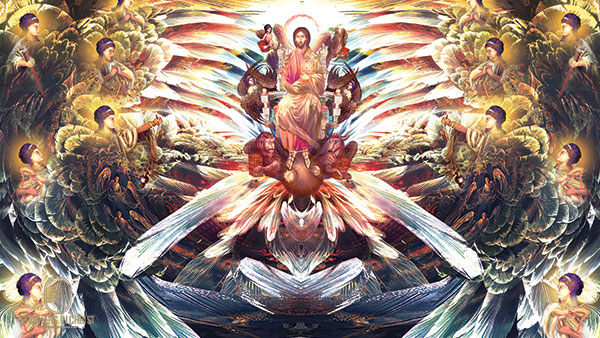
The Incarnation
The belief that Jesus Christ, the Son of God, became human
The Incarnation is a central doctrine in Catholic theology that refers to the belief that God became fully human while remaining fully divine in the person of Jesus Christ. This belief is foundational to Christian faith, and it emphasizes the mystery of God’s love and desire to be close to humanity. Here’s a deeper look into the key aspects of this doctrine:
1. Definition and Meaning
- The word "Incarnation" comes from the Latin incarnatio, which means "to take on flesh." It refers specifically to the event where the Second Person of the Trinity, God the Son, became human in the person of Jesus of Nazareth.
- According to Catholic teaching, Jesus is both fully God and fully man, possessing a divine nature and a human nature in one Person. This concept is known as the hypostatic union, which means that Jesus’ divine and human natures are united without mixing or changing.
2. Biblical Foundation
- The doctrine of the Incarnation is grounded in several passages of the New Testament. Key among them is John 1:14, which states: “And the Word became flesh and dwelt among us, full of grace and truth; we have beheld his glory, glory as of the only Son from the Father.”
- Other references include the Annunciation in Luke 1:26-38, where the angel Gabriel tells Mary that she will conceive a son by the Holy Spirit, and Philippians 2:6-8, which speaks of Christ’s humility in becoming human and obedient unto death.
3. Theological Significance
- The Incarnation is central to the Catholic understanding of salvation. Catholics believe that through the Incarnation, God directly entered into human history to redeem humanity from sin.
- Jesus, as both God and man, bridges the gap between God and human beings. His human nature enables him to be the perfect mediator, representing humanity before God, while his divine nature ensures the efficacy of his redemptive work.
- The Incarnation also underscores the dignity of human nature. By taking on human flesh, God affirms the inherent goodness of creation and human life.
4. Role of Mary
- Mary, the mother of Jesus, holds a special place in Catholic devotion to the Incarnation. She is often called the Theotokos, meaning "God-bearer" or "Mother of God," a title that affirms the reality of Jesus’ divinity from the moment of his conception.
- The Catholic Church teaches that Mary’s fiat (her willing acceptance) at the Annunciation, when she says, “Let it be to me according to your word” (Luke 1:38), was pivotal in bringing about the Incarnation.
5. Celebration in Catholic Liturgy
- The Incarnation is celebrated in a special way during the Feast of the Annunciation (March 25), which commemorates the moment when the Word became flesh.
- It is also central to the celebration of Christmas (December 25), which celebrates the birth of Jesus, marking the moment when God physically entered the world as a human baby.
- Additionally, the mystery of the Incarnation is woven throughout Catholic worship, prayers, and teachings, as it is fundamental to understanding the nature of Jesus and the means of salvation.
6. Impact on Catholic Spirituality
- The Incarnation has a profound impact on Catholic spirituality and understanding of the world. It teaches that God is intimately involved in the material world and that physical things, including the human body, have a place in God's plan for salvation.
- This belief encourages Catholics to see God’s presence in the everyday realities of life, and it emphasizes the value of compassion, empathy, and respect for the dignity of each person.
In summary, the doctrine of the Incarnation in Catholic belief is the teaching that God, in the person of Jesus Christ, took on human nature to reveal divine love and to redeem humanity. It is a profound mystery that emphasizes God’s closeness to creation and serves as the foundation for many other aspects of Christian faith and practice.

